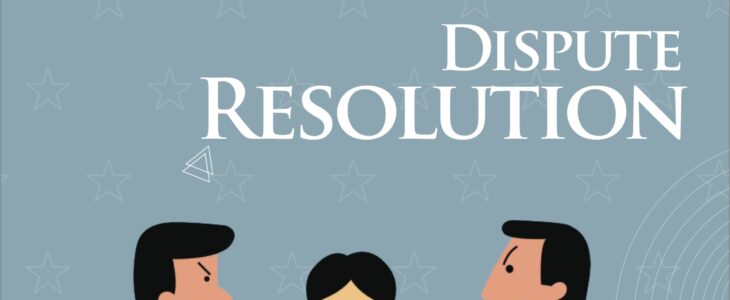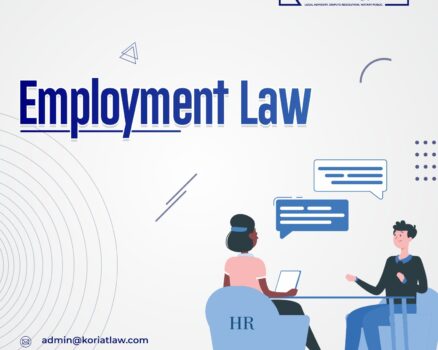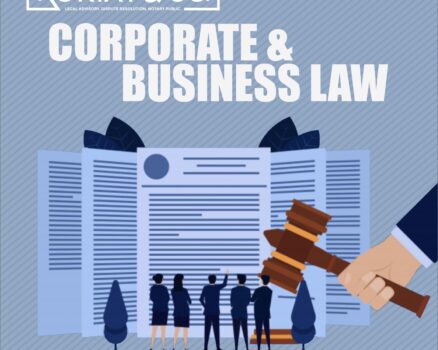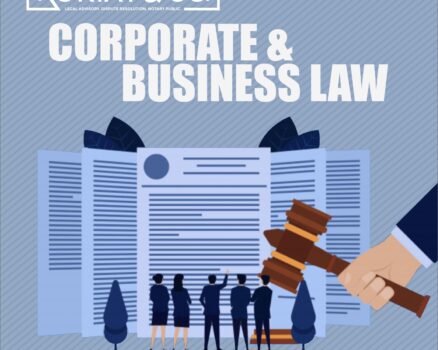
Arbitrary estimated billing for electricity consumption is a big problem in Nigeria. The problem arose as a result of a huge metering gap for end-use customers. The record of Nigerian Electricity Regulatory Commission (“NERC”), which is the agency that regulates electricity in Nigeria, shows that out of the 10,516,090 registered electricity customers as at 30 June 2020, only 4,234,759 (40.27%) have been metered. Thus, 59.73% of the registered electricity customers are still on estimated billing system.
Interestingly, NERC has over the years made efforts at protecting the consumers of electricity from any possible arbitrariness of a Distribution Company (“DisCo”). Consequently, NERC has established a dispute resolution mechanism for aggrieved consumers across the country to ventilate their complaints or claims against their respective DisCos.
We have addressed the dispute resolution process below in a question and answer format.
WHAT CATEGORIES OF CUSTOMERS ARE LIABLE TO ESTIMATED ELECTRICITY BILLS?
According to section 3 of the Methodology for Estimated Billing Regulations 2012, the following categories of customers may be issued with estimated bills:
- Customers with faulty meters: These are existing customers who have been previously issued meters but whose meters are no longer functional; or
- Customers whose meter cannot be read: These are customers whose meter reading could not be obtained by the DisCo due to inaccessibility occasioned by locked doors or gate or customers not being at home at the time of reading the meter, presence of dogs or other wild animals or reptiles on the premises, etc.; or
- Existing customers without meters: These are directly connected customers that have not been provided with meters.
It is noteworthy that the Order on the Capping of the Estimated Bills in the NESI repealed the Methodology for Estimated Billing Regulations 2012 and also addressed the practice of arbitrary billing of unmetered Non-MD customers while seeking to fast track the deployment of meters through the Meter Asset Provider (MAP) Scheme. The Order provides that “the Commission shall periodically review the meter deployment targets achieved by DisCos and shall on a quarterly basis review the base data on the vending records and supply availability for the purposes of reviewing the energy caps.”
Sequel to the above, effective from 1st November 2020, the capping of estimated bills have been amended by NERC for Eko Electric Distribution Plc, Yola Electricity Distribution Plc, Port-Harcourt Electricity Distribution Plc, Kano Electricity Distribution Company Plc, Kaduna Electricity Distribution Plc, Jos Electricity Distribution Plc, Ikeja Electric Plc, Ibadan Electricity Distribution Plc, Enugu Electricity Distribution Plc and Benin Electricity Distribution Plc respectively.
Specifically, NERC ordered as follows:
- The energy caps of unmetered end-use non-maximum demand (“Non-MD”) customers of any of the above DisCos shall be computed on the basis of the weighted averages of prepaid and postpaid metered end-use customer on the basis of actual consumption data of these customers from feeders and distribution transformers.
- All unmetered Non-MD customers of DisCos shall not be billed for the consumption of the energy beyond the cap stipulated in scheduled 1 of this Order.
- The energy caps prescribed by the commission shall only apply to Non-MD customers.
- Non-MD customers under tariff band D and E whose tariffs have been frozen shall have their tariffs computed using corresponding tariff rates of R2 and C1 under previous tariffs classification.
- Details of the business unit, feeders/distribution transformer name, tariff class and rates shall be disclosed on the all bills and receipts issued to customers by the DisCos.
- Any customer that rejects the installation of a meter on their premises, by DisCos shall not be entitled to supply and MUST BE DISCONNECTED by a Disco, and shall not reconnected to the network after the meter has been installed.
- A DisCo shall notify customers of any outstanding bills on their account and agree a payment plan for the settlement of amount due prior to installing a meter on the customer’s premises.
- Where a customer’s meter becomes faulty and a replacement meter cannot be provided by a DisCo within 2 working days, the customer shall be billed an average of the last 3 month’s billing/vending in accordance with section 16(5) of the MAP Regulations until the meter is rejected.
- The commission shall periodically review the meter deployment target achieved by a DisCo and shall on quarterly basis review the base data on vending records and supply availability for the purpose of reviewing the energy caps prescribed in this Order.
WHAT ARE THE STEP-BY-STEP PROCEDURES FOR CHALLENGING ARBITRARY ESTIMATED ELECTRICITY BILLS?
Any residential and commercial customers (i.e. Customers in the R2 and C1 tariff categories), who have been billed above the capped energy by their Distribution Companies (“Discos”) from the month of March 2020 when Order No/NERC/212/2020 (which amended Order No/NERC/197/2020 of 2nd February 2020) came into effect, must, first of all, go through the dispute resolution process contained in the NERC Customer ComplaintsHandling: Standards & Procedures Regulation, 2006.
In order to successfully challenge arbitrary electricity tariffs, the customer must satisfy the following procedures:
1 the Customer will first lodge complaints in writing to the NERC Forum of the relevant Disco’s Customer Complaints Unit (“CCU”) responsible for the supply of electricity within the customer’s area. Every Disco is required to set up CCU(s) for its business area, headed by a senior officer (Customer Complaints Officer), for receiving and resolving customer complaints within fifteen (15) working days;
2 where the CCU fails to respond or delays in responding to the complaints within fifteen (15) working days, the customer will log into the official website https://nerc.gov.ng/ and fill out the online Complaints Form attaching and uploading the Electricity Bill with phone Number of the Applicant clearly written on the Bill;
3 If after a few days, a customer still does not get a response or experience delay in response, he/she will send reminder email to complaints@nerc.gov.ng stating his/her complaints and attaching the Electricity Bill;
4 Where the Customer gets a response from the NERC Forum, and satisfied, it then brings the complaints to an end. The Forum reaches its decision based on majority and has the power to dismiss unmeritorious complaints. If the Forum finds that customer’s complaints are proven, one or more of the following can be ordered:
a. returning to the complainant the undue charges paid by him;
b. removing the defects/deficiencies in the services which are the subject of the complaint;
c. discontinuing the unfair trade practices or restrictive business practice or not to repeat them;
d. withdrawing the hazardous electrical services being offered; and
e. providing for adequate costs to the claimant.
However, where the Customer is dissatisfied with the response, the aggrieved Customer has a right to Petition NERC by way of appeal. By virtue of Sec 50 1[h] Electric Power Sector Reform (EPSR) Act, 2005, NERC is empowered to hear appeals relating to tariffs of electricity.
5 All Petitions to be filed before NERC shall be typed and every page shall be numbered sequentially. Petitions shall be filed in one (1) original and eight (8) copies along with an electronic version or as may be specified by NERC and shall contain the following:
i accompanied by such documents as may be necessary (Electricity Bill);
ii must be headed “IN THE NIGERIAN ELECTRICITY REGULATORY COMMISSION”;
ii must state, in brief, the purpose of the Petition or application;
iii Full Names and Addresses of the Petitioner (aggrieved customer) and the Respondent (the Electricity Distribution Company)
iv Affidavit in Support of the Petition stating the following:
a Full name, age, occupation and address of the Customer and the capacity in which he/she is signing and shall be signed and sworn before a person lawfully authorized,
b must clearly and separately indicate statements, which are true to the knowledge of the deponent;
c The affidavit shall clearly and separately indicate statements, which are true to the knowledge of the customer, information received by the customer and belief of the Customer.
N.B. a Customer may appear himself/herself or authorize a legal practitioner or a member of any statutory professional body as directed by NERC to represent or authorize any of his/her employee to appear before NERC and to act for and behalf of himself/herself.
WHAT IS THE TIMELINE FOR HEARING A CUSTOMER’S PETITION BY NERC?
The NERC usually schedules the hearing of a customer’s petition within forty-five (45) days from the date it was lodged with the NERC.
However, NERC may further extend the time limit for not more than thirty (30) days and shall not exceed three (3) times, where it is unable to schedule the Petition for hearing within the said forty-five (45) days or where the Customer requests for extension of time, provided the extension shall be preceded by at least seven (7) day-notice prior to the expiration of the forty-five (45) days.
WHAT CAN A DISSATISFIED CUSTOMER DO WITH THE DECISION OF THE NERC?
A Customer, who is dissatisfied with the decision made by the NERC, may then approach the High Court within the state to seek further redress. At the High Court, the following orders may be granted to a successful claimant:
- An interim injunction directing a DisCo to do or not to do or to stop a particular act pending the hearing and determination of an interlocutory application. This order may be granted ex-parte (i.e. in the absence of a defendant) in an exceptional circumstance. It is usually followed by an order of interlocutory injunction and, thereafter, a perpetual injunction. In Kotoye v. CBN the Supreme Court that applicants for ex-parte injunction must disclose all the material facts and that misrepresentation of facts is a ground not only to vacate the interim order but also attracts some other ugly consequences for the beneficiary of the order. This order usually lasts for a short time, usually fourteen (14) days even though in practice the order will contain the next court’s hearing date which may be or not beyond the fourteen (14) days. If the order is not extended, then it lapses.
- An interlocutory injunction directing a DisCo to do or not to do or to stop a particular act pending the hearing and determination of the substantive suit. The main purpose of this order is to keep the matter between a DisCo and a customer in status quo before the substantive issues raised in the customer’s case are determined by the court. This order lasts throughout the duration of the pendency of the suit. It is followed by a perpetual injunction at the conclusion of the proceedings. In Sabru (Nig.) Ltd. v. Jezco (Nig.) Ltd. the Court of Appeal opined that applications for interlocutory are properly made on notice to the other party upon which an injunction may be granted not only after full contest by both parties but also it is made to last till the end of the case. An interlocutory injunction stands discharged or vacated if a perpetual injunction is not subsequently granted in the court’s final judgment.
- Perpetual injunction is granted to a successful consumer of electricity based on a final determination of his or her claims against a DisCo, and it is intended to prevent permanent infringement of those rights and remove the necessity of bringing a new action after action in respect of every such infringement. In law, where a person’s legal right has been infringed or invaded and there is a continual invasion or threat of continuance of such an invasion and the legal rights of the parties have been determined in a final judgment, the successful party is entitled to a perpetual or permanent injunction. See Ibenwelu v. Lawal (1971) 1 All NLR 23; Enang v. Adu (1981) 11-12 SC 25.
- The court is empowered to order damages as compensation to a consumer of electricity whose rights have been infringed upon by a DisCo. Damages can be general or special. General damages represents a quantum of compensation that the court awards in its discretion to any consumer of electricity who is a victim of the wrong acts or omission of a DisCo. However, special damages relates to the monetary amounts of specific losses or injuries which is awarded based on evidence. A party suing or seeking special damages must plead them, list or particularize them, and prove them with compelling evidence before the court can grant them.
ARE THERE ANY COSTS/CHARGES ASSOCIATED WITH CHALLENGING ARBITRARY ELECTRICITY TARIFFS?
There is no charges/cost associated with challenging arbitrary tariffs right from when a complaint is made and up to the appeal process before NERC.
However, notwithstanding the foregoing, a lawyer may charge professional fees for handling a customer’s petition/appeal to the NERC or conducting a case on behalf of such customer at the High Court.
In our experience, a case hurriedly filed at the High Court without exhausting the above mechanism of dispute resolution may be liable to being struck out on a timeous preliminary objection of the affected DisCo. The courts have held that proof of exhausting the internal dispute resolution process of the NERC is a condition precedent to instituting a competent lawsuit and invoking the jurisdiction of the presiding court.




